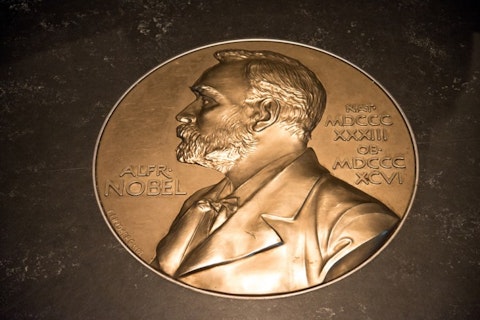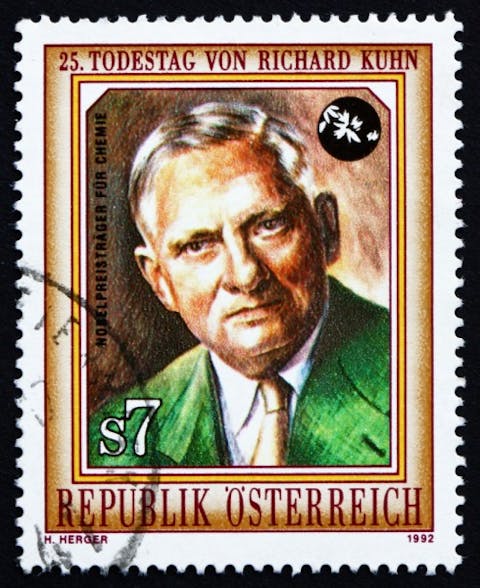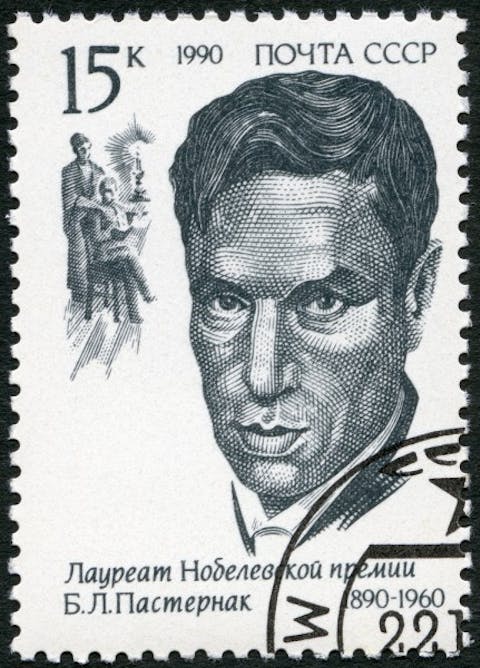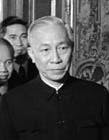While impressions of last Nobel award ceremony are still fresh, read our list of 6 Nobel Prize winners who declined the prize, and discover some interesting facts – why did Sartre reject the award? Did German Nobel laureates in chemistry cooperate with Nazi government? What did Pasternak write in the letter to Premier Khrushchev after declining the award? To which extent did CIA participate in the popularization of Doctor Zhivago, the book that brought Pasternak Nobel Prize in Literature? Why did Gerhard Domagk give his daughter medicine for which discovery he got Nobel award despite the fact that it wasn’t previously tested on humans?

Pe3k / Shutterstock.com
Since 1901 Nobel Prize has been awarded for Physics, Chemistry, Physiology/ Medicine, Literature, Peace and Economics. Until now 573 prizes have been given to 900 individuals and organizations, and among them some received the award more than once, for instance, International Committee of the Red Cross received three Nobel Prizes for Peace. In its hundred and fourteen years’ long history, Nobel Prize hasn’t been awarded forty-nine times, mainly because of world wars. Nobel laureates have been people who have not only shaped the world of science and literature, but also directly influenced lives of ordinary people. Throughout decades, the most prestigious award has brought money and recognition to its receivers and secured laureates’ places in history. But as biographies of Nobel winners testify, the road to success is paved with obstacles. Sometimes obstacles become part of the person’s identity, as our list of 10 Majorly Successful People with Disabilities shows, and sometimes they come from outside, as in the case of people who were compelled to decline the Nobel award. The list of 6 Nobel Prize winners who declined the prize presents you two men who rejected the prize willingly, and other four who were forced to do so by Nazi and Soviet authorities.
6. Richard Kuhn
1900 – 1967
Kuhn was awarded the Nobel Prize in Chemistry “for his work on carotenoids and vitamins” in 1938. However, he was forced to decline the award by the Nazi regime. Prominent German chemist discovered chemical structures of vitamins A, B2, and B6, and, more importantly, managed to synthesize them. He was a true genius who received a PhD degree when he was only 21 years old, and he managed to become professor five years later. While no one has ever questioned his brilliance, his morality has recently come under scrutiny because of his close relationship with the Nazi party.
Although Kuhn wasn’t a member of the Nazi party, he complied with Hitler’s anti-Semitic ideology. He fired all his Jewish employees at the Kaiser Wilhelm Institute for Medical Research and he publically criticized his colleague Otto Meyerhof (another Nobel laureate) for employing Jews. Moreover, Kuhn actively participated in numerous projects on nerve gas and some records show that he asked for the brains of “young and healthy men” to conduct his research. While it is almost certain that brains were taken from dead bodies and that Kuhn didn’t participate in human experiments in concentration camps, he nevertheless allocated funds for Nazi research. Kuhn later defended his experiments as beneficial for the whole humanity.
In 2005,, the Society of German Chemists announced that it would no longer award the medal that was named after Richard Kuhn. The main reason is his involvement in Nazi scientific experiments. In the explanation of the decision, Society states: “Even though the question of whether Kuhn was a convinced National Socialist or just a career-oriented camp follower is not fully answered, he undisputably supported the Nazi-regime in administrative and organizational ways, especially by his scientific work. Despite his scientific achievements, Kuhn is not suitable to serve as a role model, and eponym for an important award, mainly due to his unreflected research on poison gas, but also due to his conduct towards Jewish colleagues.”

Boris15 / Shutterstock.com
5. Adolf Butenandt
1903 – 1995
Butenandt was awarded the Nobel Prize in Chemistry “for his work on sex hormones” in 1939. He shared the award with Leopold Ruzicka, Croatian-Swiss scientists.
Adolf Butenandt did a lot of pioneering work on sex hormones. First, in 1929, he isolated estrone, female sex hormone, from the urine of pregnant women. The second female hormone that he managed to isolate was progesterone by using ovaries of 50.000 sows to obtain 20 milligrams of the hormone. In 1931, he isolated male hormone androsterone. Together with Dr. Ruzicka, who investigated the relationship between cholesterol and androsterone, he synthesized testosterone. His work eventually led to the discovery of birth control pills. Besides researching hormones, Butenandt made a lot of important discoveries about pheromones and gens.
Adolf Butenandt, like Richard Kuhn and Gerhard Domagk, was forced by Hitler to decline the award. Hitler forbade German scientists to receive the award because, in 1935, Carl von Ossietzky, journalist and pacifist, won Nobel Peace Award for exposing German’s re-armament during Versailles Treaty. Ossietzky was arrested in 1933 and kept in a concentration camp until 1938 when he died.
Although Nazi prevented Butenandt to receive the award, one can hardly say that he was Nazi opponent. As a matter of fact, he was a member of Nazi party from 1936, and while Max Planck Society says that he “never made his mark in the party actively”, there are evidence that he participated in military researches. However, the extent of his involvement with the Nazi party has never been determined.
Adolf Butenandt eventually received the award in 1949.
4. Gerhard Domagk
1895 – 1964
Domagk was awarded Nobel Prize in Physiology /Medicine “for the discovery of the antibacterial effects of prontosil” in 1939.
Domagk discovered prontosil – “the first commercially available antibiotic”. While drugs such as penicillin and other antibiotics, which were discovered few years later, and which proved to be more effective in treating bacterial infections, replaced prontosil, benefits of this drug can’t be questioned. In the time when it appeared, the number of people who died from common bacterial infections dramatically went down.
One of Domagk’s first patient was his six years old daughter Hildegard, who was successfully treated with prontosil. Hildegard accidentally stabbed herself with a unsterilized needle and got a severe infection. Her condition was so serious that one of treatment options was amputation of the arm. However, Domagk made a desperate move and gave his daughter large doses of prontisli, the drug that previously was tested only on lab animals. The medicine helped and after two days she left hospital cured.
Soon after Nobel committee announced that Domagk won the prize, Gestapo arrested him and kept him in prison for seven days. In 947 Domagk finally received the award but without money.
Domagk’s later work also contributed to the discovery of isoniazid – a drug used in the treatment of tuberculosis.
3. Boris Leonidovich Pasternak
1890-1960
The third place on the list of 6 Nobel Prize Winners who Declined the Prize occupies Pasternak, who was awarded Nobel Prize in Literature “for his important achievement both in contemporary lyrical poetry and in the field of the great Russian epic tradition” in 1958.
The book which brought Pasternak the award was the novel Doctor Zhivago, which was later turned into a movie that won five Oscars. The book couldn’t be published in the Soviet Union because of its liberal views on socialism, so it was smuggled into Italy where it was published in 1957. A year later world read English translation that rapidly became a bestseller. The sudden popularity of the book, as well as Nobel Prize, were results of CIA comprehensive campaign whose aim was to expose the life under communism. Declassified CIA documents show that “The Zhivago project was one of many CIA-supported covert publishing programs that involved distributing banned books, periodicals, pamphlets, and other materials to intellectuals in the Soviet Union and Eastern Europe.” Soviet’s authorities acted swiftly, publicly denouncing Pasternak and his work, and threatening him that he wouldn’t be allowed to re-enter Russia if he went to Stockholm to receive the award. Pasternak declined the award with the words: “Considering the meaning this award has been given in the society to which I belong, I must reject this undeserved prize which has been presented to me. Please do not receive my voluntary rejection with displeasure “. In the letter to Premier Khrushchev, Pasternak revealed his true reasons for rejecting the prize: “Leaving the motherland will equal death for me. I am tied to Russia by birth, by life and work.”
Pasternak’s legacy goes far beyond Doctor Zhivago. He was also a poet, translator, composer.

Olga Popova / Shutterstock.com
2. Jean-Paul Sartre
1905-1980
Sartre was awarded the Nobel Prize in Literature “for his work which, rich in ideas and filled with the spirit of freedom and the quest for truth, has exerted a far-reaching influence on our age” in 1964.
Jean-Paul Sartre declined the award, explaining that the reasons that motivated his decision were personal and objective. The personal reason was his firm belief that “all the honors he may receive expose his readers to a pressure… If I sign myself Jean-Paul Sartre it is not the same thing as if I sign myself Jean-Paul Sartre, Nobel Prizewinner“.
On the other side, his objective reason was his conviction that “only battle possible today on the cultural front is the battle for the peaceful coexistence of the two cultures, that of the East and that of the West.” While he admitted that “Nobel Prize in itself is not a literary prize of the Western bloc”, he pointed out that prize was awarded either to the West writers or the rebels of the East. “It is regrettable that the prize was given to Pasternak and not to Sholokhov, and that the only Soviet work thus honored should be one published abroad and banned in its own country.”
Finally, Sartre mentioned the question of money and whether he had the right to reject money which would provide enormous help to the organization that fought for important causes. However, he concluded by saying that it is a false dilemma and that one couldn’t renounce his own principles for money.
1. Le Duc Tho
1911-1990
Le Duc Tho, theVietnamese politician, is in the first place on our list 6 Nobel Prize Winners who Declined the Prize. Tho was awarded the Nobel Peace Prize for his involvement in Paris Peace Talks that lead to a ceasefire in Vietnam War in 1973. He shared the award with Henry A. Kissinger.
Nobel Peace Prize award from 1973 has been one of the most controversial. First Le Duc Tho declined the prize and then Kissinger didn’t show up at the award ceremony, so two members of the Nobel Prize selection committee withdrew. Moreover, Kissinger’s critics accused him of being involved in the secret bombing in Cambodia. Finally, true peace in Vietnam was established only two years later, in 1975.
Le Duc Tho explained the refusal to accept the award with the following words: “Since the signing of the Paris agreement, the United States and the Saigon administration continue in grave violation of a number of key clauses of this agreement. The Saigon administration, aided and encouraged by the United States, continues its acts of war. Peace has not yet really been established in South Vietnam. In these circumstances it is impossible for me to accept the 1973 Nobel Prize for Peace which the committee has bestowed on me. Once the Paris accord on Vietnam is respected, the arms are silenced and a real peace is established in South Vietnam, I will be able to consider accepting this prize. With my thanks to the Nobel Prize Committee please accept, madame, my sincere respects.”






